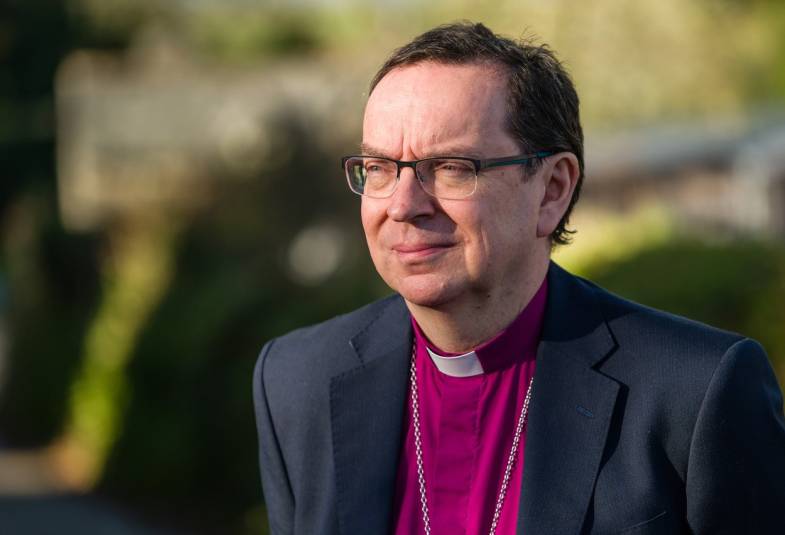14/09/2020
Back to Pioneer Hive home

Let me start with what is not so much a confession as a simple statement of fact. I am not a pioneer. I know pioneers when I see them and I know I’m not one. I recognise that instinct for the margins, the restlessness and impatience with the ordinary, that marks out all true pioneers. But while I am not myself a pioneer I see within myself an instinct to support and champion such people. I think it’s a vital instinct that all bishops ought to have – because the church in every age desperately needs its pioneers. Let me justify that assertion.
If there is one significant threat to the church in the West, it's its lack of imagination. We are very used to doing things in the same old way. We are much less good at finding new ways of being church and making the good news known. But we need to. In words attributed (probably wrongly!) to Oscar Romero, 'We are prophets of a future not our own.' But are we, actually? I fear not.
But pioneers are just such prophetic people, pointing to a different, to a better, to a Kingdom future. They do so through a creativity the church too often lacks, imagining and creating a better future. Our God is creative, and creativity is one of his greatest gifts to us. And mission is always a creative act. If we will allow them to, pioneers can lead in just the kind of missional creativity that is so essential for the flourishing of the work of the Kingdom.
Scripture in fact points us in just such a direction. From start the finish the Bible is a book about mission. It tells us what God has done, and is doing. Its overriding theme is 'the going-forth of God', reaching out to his world, in creation and in redemption. It sets our direction of travel for us – and it is overwhelmingly a pioneering direction. So pioneers can help us better conform to the template of scripture.
And they can better help us reflect the heart of God: mission is the heartbeat of God. It is what he lives for. And it is what Jesus died for. The grand narrative of Scripture is all about the going-forth of God in love. When God came to us, in love, in Jesus, he accommodated himself to us. He came to us in a shape and a form we can understand. And that has to be our model in mission, to take context and culture, language and identity, seriously, because to do so is an act of love. Pioneers know that instinctively. But too often in the wider Church we invite people to come to us and be like us. But truly loving mission is not like that. Instead of inviting people to accommodate themselves to us we will go the extra mile and accommodate ourselves to them - as pioneers do.
There are perhaps two key forces at work in the life of the church: a centripetal pull to the ecclesial centre and centrifugal force to the missional edge. Max Warren characterised the two as the spirits of Rome and of Iona. The force of the former is strong – and it is not in itself wrong. But something is awry when ‘ecclesiastical tidiness’ trumps ‘the questing spirit of initiative’, to use Warren’s words.
A key episcopal task today is not simply to occupy the ecclesial centre but to stand eccentric to it, to champion the pioneers amongst us, and to allow them, and the centrifugal force of the Spirit, to draw us all out towards the missional edge. For that is where we truly belong.
But how do we do that? There is no simple formula of course, but I’ve attempted to champion pioneering here in the Diocese of Truro in two particular ways.
First I have attempted to raise the profile pioneers here. I have been consistently delighted by the sheer numbers of pioneers I have met here, engaged in a whole range of ministries, particularly – but not surprisingly – in surf culture and the arts. But because they are not doing church ‘as normal’ they are all too easily overlooked. I’ve had to seek them out, and have consciously and deliberately gathered them together and sought to give them profile in our diocesan life, encouraging their voices and stories to be heard. And our emerging diocesan vision “The Saints’ Way” deliberately commits us to ‘embrace an innovative and pioneering culture’ in recognition of how essential they are to us.
Secondly, “The Saint’s Way” begins, quite deliberately, with a narrative, and an invitation to locate ourselves within that narrative. It’s a distinctively Cornish narrative that describes the mission of God in this place: a mission marked from the very earliest days of the Celtic saints by pioneering passion. It’s a passion that can be traced down through the centuries too. More widely Cornwall has been a place of imagination and creativity in industry and the arts that has significantly shaped the wider world. So pioneering is deep within Cornwall’s DNA, and my consistent message is that we need to draw deeply on that historic heritage in order to be faithful and fruitful in the future. It’s that distinctive pioneering past that must set our future trajectory.
There is one illustration that captures that perfectly for me. For many years Cornish miners were either paid according the amount of ground they worked, irrespective of the value of what they brought to the surface – or else they paid ‘tribute’. When they paid tribute they bought the ‘pitch’ they worked, and could keep all the profits from the ore they mined.
That encouraged a particularly entrepreneurial, pioneering spirit: to dig deeper, and mine a richer seam. That has to be what we do today, for the Kingdom of God. We so need pioneers who will lead us all in digging deeper, and mining a richer seam. And as Bishop I’m committed to doing all I can to enable that to happen.
